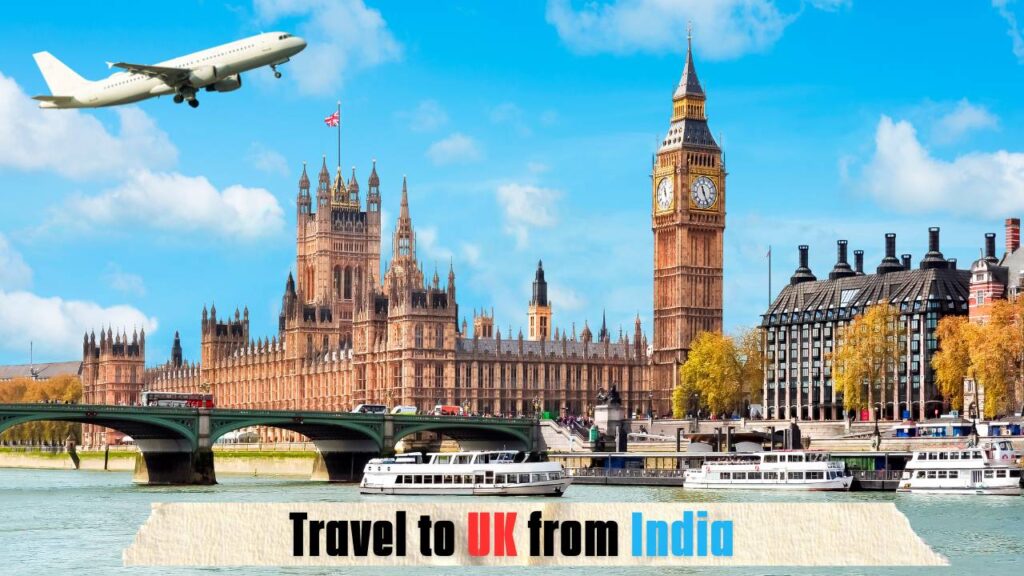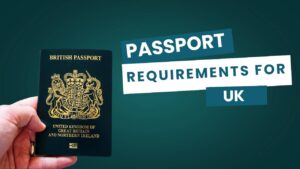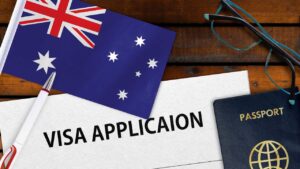Travel to UK from India in 2025 is expected to grow significantly, with increasing opportunities and improved connectivity.
This guide walks you through every step of the journey—starting from securing the right visa, selecting trusted airlines, estimating travel costs, and following the latest UK entry regulations. Indian travelers visiting the UK for tourism, education, business, or family purposes gain a clear understanding of all the essential requirements and processes.
The UK draws thousands of Indian citizens each year with its iconic landmarks, rich cultural diversity, globally ranked universities, and dynamic business landscape. By planning ahead and staying informed, you streamline your travel experience and avoid unnecessary complications.
Travel to UK from India in 2025
Travel to UK from India has become smoother in recent years, with better air connectivity, faster visa processing, and more traveler-friendly policies. In 2025, these improvements continue to make the journey accessible to a wider range of people. The United Kingdom is home to iconic landmarks like the Big Ben, Buckingham Palace, the London Eye, and the British Museum.
But more than just sightseeing, it’s also a hub for world-class education, healthcare, business, and technology. With bilateral agreements and diplomatic ties strengthening, more streamlined processes are being introduced for Indian citizens, making travel more efficient and reliable.
Types of UK Visas for Indian Citizens in 2025
Selecting the right visa based on your travel purpose is essential. Below are the most common types of UK visas available for Indian passport holders in 2025:
1. Standard Visitor Visa
This visa is ideal for short stays such as tourism, family visits, or attending business meetings. It allows a stay of up to 6 months and prohibits employment or access to public funds.
Key Requirements:
- Valid passport and biometric details
- Hotel/accommodation bookings
- Financial documents (bank statements, ITRs)
- Return or onward travel proof
- Purpose-of-visit documentation (invitation letter if applicable)
Processing Time: 15 working days (standard), with priority services available for faster results.
Tip: Apply early and ensure your documents are genuine and clearly organized to avoid delays or rejection.
2. Student Visa (Tier 4)
This visa is for Indian students accepted into a UK university or college.
Key Requirements:
- Confirmation of Acceptance for Studies (CAS)
- Proof of English proficiency (IELTS, TOEFL)
- Financial evidence to cover tuition and living expenses
- Tuberculosis (TB) test report (if applicable)
Work Rights: You can work up to 20 hours/week during term time and full-time during vacations.
Post-Study Opportunity: After graduation, apply for the Graduate Route visa, which allows you to stay and work for up to 2 years.
Processing Time: 3–4 weeks
3. Skilled Worker Visa
This visa is suitable for professionals who have received a job offer from a UK-based employer with a licensed sponsorship.
Eligible Sectors: IT, healthcare, engineering, finance, education, and hospitality.
Key Benefits:
- Fast-track option for health and care professionals
- Pathway to permanent residency after 5 years
- Right to bring family (dependents can also work/study in the UK)
Minimum Salary Requirement: Generally £26,200/year or £10.75/hour, but varies by job role
Processing Time: 3–8 weeks depending on service type
4. Family Visa
This visa allows you to join close family members who are UK citizens or permanent residents.
Eligible Relations: Spouse, fiancé, child, or parent
Requirements:
- Proof of relationship (marriage certificate, birth certificate)
- Financial and housing details
- English language test (A1/A2 level for most applicants)
Duration & Residency Path: Stay for up to 33 months, renewable. After 5 years, you may apply for Indefinite Leave to Remain (ILR), and later British citizenship.
5. Transit Visa
If your journey involves transiting through the UK for less than 48 hours, this visa ensures a smooth airport transfer.
Documents Required:
- Confirmed ticket for onward travel
- Valid visa (if required) for the destination country
- Sufficient funds for transit expenses
Even though short, this visa plays a vital role in avoiding unnecessary delays at UK airports.
Key Rules & Travel Requirements for Indian Citizens in 2025
To ensure a hassle-free travel experience, here are the most important rules and regulations you should follow:
1. Passport Validity
Ensure your Indian passport is valid for at least 6 months beyond your intended stay in the UK. A damaged or expired passport can lead to immediate rejection at immigration.
2. Accurate Visa Documentation
Keep a physical and digital copy of all key documents:
- Visa approval letter
- Hotel or accommodation bookings
- Travel itinerary and insurance
- Financial statements (last 6 months)
- Return flight tickets
- Invitation letters (if staying with family/friends)
Tip: Always double-check that all documents match your visa application and reflect your true travel intent.
3. COVID-19 & Health Guidelines
As of 2025, the UK does not require quarantine for Indian travelers:
- Carry your COVID-19 vaccination certificate
- Take an RT-PCR test 72 hours before departure (especially for elderly travelers or those with medical conditions)
- Secure travel insurance covering medical emergencies, including pandemic-related risks
Some universities and employers may also require a full health check-up before allowing entry.
4. UK Customs & Border Control
UK border agents are thorough and may ask questions even if you hold a valid visa.
What to Declare:
- Goods over £390 in value
- More than £10,000 in cash
- Items like dairy, meat, wildlife products, and sharp objects
- High-value electronics or jewelry
Tip: Stay calm, answer truthfully, and keep your documents accessible during border checks.
Pro Tips for Smooth UK Travel in 2025
Book Early:
Secure your flight tickets and visa appointment well in advance, especially if you plan to travel during high-demand months such as June to August or around the Christmas holidays in December. Early bookings not only guarantee better availability but also help you save money, as last-minute airfares and visa service fees tend to rise sharply. Booking early also gives you more flexibility in choosing travel dates and preferred airlines.
Use GOV.UK:
Always rely on the official UK government website (www.gov.uk) for the most accurate and updated information regarding visa categories, processing times, documentation requirements, and health or travel advisories. Avoid relying on third-party sources that may not reflect recent policy changes. The site also provides helpful tools such as eligibility checkers and downloadable guidance for each visa type, ensuring that your application is correctly filled and submitted.
Track Your Application:
Once you’ve submitted your visa application, monitor the status regularly through the official UKVI online portal or VFS Global’s tracking system. Staying updated on your application helps you stay prepared for additional requests, such as biometric appointments or document verification. It also ensures that you don’t miss any deadlines or communications from the visa office.
Attend the Visa Interview Well-Prepared:
Treat your visa interview with the same importance as a job interview. Dress appropriately in formal attire to make a good impression. Carry original documents along with clear photocopies, arranged in order for easy presentation. Be ready to explain the purpose of your visit, itinerary, financial support, accommodation plans, and ties to India that ensure your return. Clear and confident answers increase your chances of a successful visa outcome.
Check Passport Validity and Supporting Documents:
Ensure your passport is valid for at least six months beyond your intended stay in the UK. Double-check that all required documents—such as bank statements, sponsor letters, university admission letters (for students), and employment records (for work or business visas)—are recent, genuine, and translated into English if necessary.
Stay Informed About Transit Rules and Layovers:
If your flight includes a layover in another country, make sure you are aware of any transit visa requirements. For example, some travelers may need a Schengen transit visa if transiting through a European country. This extra step often gets overlooked and can disrupt your travel plans.
Prepare for Arrival Procedures:
Upon landing in the UK, you’ll go through border control. Be ready to show your visa, passport, and proof of accommodation or return tickets if requested. Know your address in the UK and be able to explain the purpose and duration of your stay clearly to the immigration officer.
How to Get a UK Visa Fast: Step-by-Step Guide for Quick Approval
Plan smartly, follow the rules, and enjoy your journey to the fullest. Whether you’re walking down Oxford Street or attending a lecture at Cambridge, your UK trip in 2025 will surely be one to remember.
FAQs
1. What types of visas are available for Indian travelers going to the UK?
Indian travelers can apply for several UK visas depending on their purpose of visit, such as Visitor Visa (tourism, family visits), Student Visa (higher education), Work Visa (skilled worker, intra-company transfer), Business Visa, and Transit Visa. Each visa has specific eligibility criteria and documentation requirements.
2. How long does it take to get a UK visa from India?
Visa processing times vary based on the type of visa and the season. Typically, visitor and student visas take around 3 weeks, while work visas may take longer. It is advisable to apply at least 3 months before your planned travel date to avoid last-minute delays.
3. What documents are required for a UK visa application from India?
Commonly required documents include a valid passport, completed visa application form, proof of financial means, travel itinerary, accommodation details, invitation letters (if applicable), academic or employment documents, and recent passport-sized photographs. Biometric data (fingerprints and photo) is also collected during the application process.
4. Can I work in the UK on a tourist visa?
No, working in the UK on a tourist visa is strictly prohibited. If you plan to work, you must apply for an appropriate work visa that allows employment in the UK.
5. Are there any COVID-19 travel restrictions or health requirements for traveling to the UK?
Travel rules related to COVID-19 can change frequently. As of 2025, travelers may need to show proof of vaccination, negative COVID tests, or comply with quarantine rules depending on the prevailing situation. Always check the latest updates on official government websites before booking your trip.
6. What are the best airlines to fly from India to the UK?
Popular airlines on this route include British Airways, Air India, Virgin Atlantic, and Emirates (via Dubai). Non-stop flights are available from major Indian cities like Delhi, Mumbai, Bengaluru, and Chennai to London Heathrow and Gatwick airports.
7. How much does a round-trip flight from India to the UK typically cost?
Flight prices vary by season and booking time. On average, a round-trip economy ticket ranges from ₹40,000 to ₹80,000. Booking early and being flexible with travel dates can help reduce costs significantly.
8. What should I do if my UK visa application gets rejected?
If your visa application is rejected, you will receive a detailed explanation. You can appeal the decision, reapply with corrected or additional documents, or seek professional legal advice to improve your chances in future applications.
9. Can I extend my stay in the UK after arriving on a visitor visa?
Visitor visas are generally not extendable beyond six months. If you wish to stay longer, you need to apply for a different visa category before your current visa expires.
10. What are the customs regulations for travelers arriving in the UK from India?
Travelers must declare items such as large sums of cash (over £10,000), certain foods, plants, or restricted goods. The UK has strict rules on importing animal products, alcohol, tobacco, and medicines. It is important to check customs regulations to avoid fines or confiscation.






